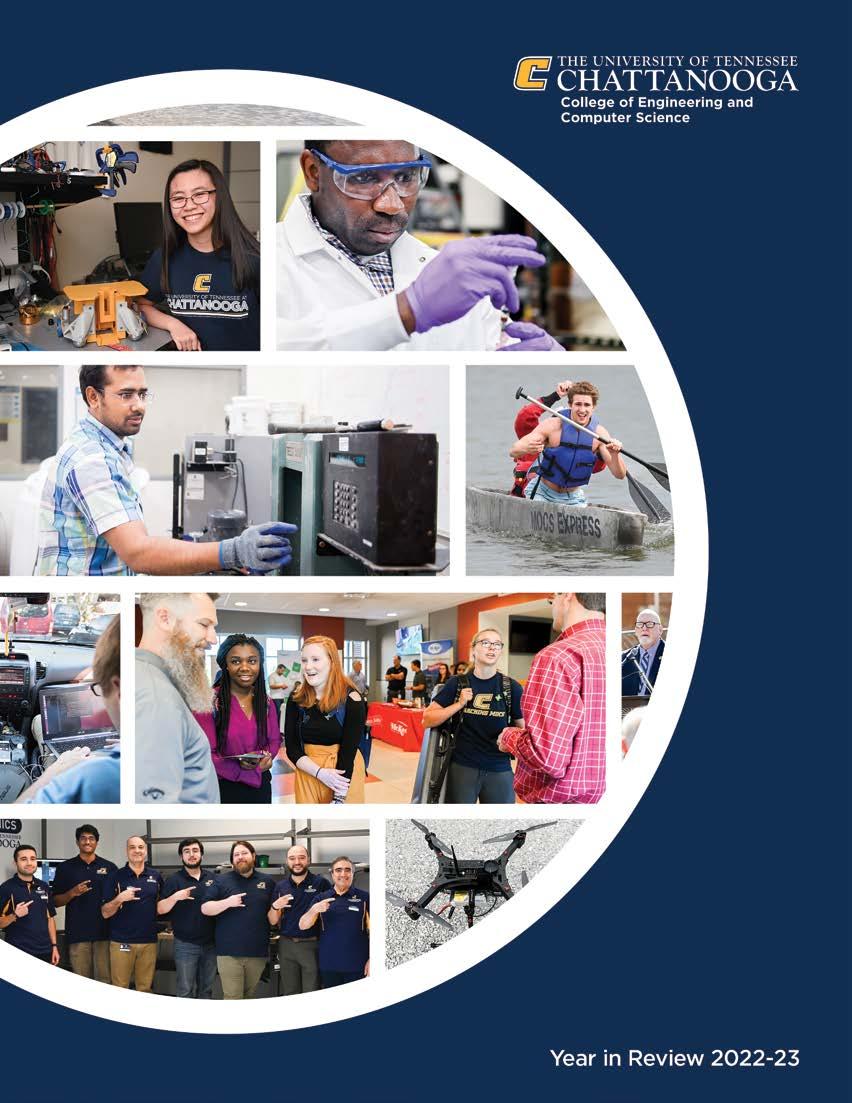
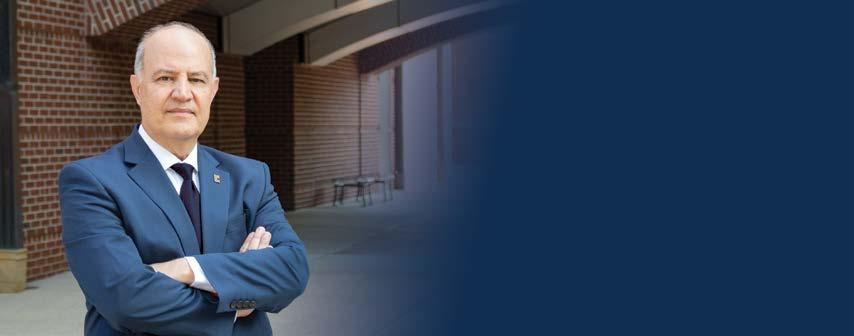
I am honored to assume the role of interim dean of the College of Engineering and Computer Science (CECS). It has been an incredible journey working alongside the CECS community and the University of Tennessee at Chattanooga (UTC) colleagues to gain a profound understanding of the challenges and aspirations that lie ahead.
Every fall, we come together to compile “The Year in Review,” a publication that celebrates the remarkable accomplishments within our CECS community. While the past cannot solely dictate our future, it offers valuable insights into our journey. This year, we not only commemorate our achievements but also embrace the rapidly evolving world of technology. I wholeheartedly endorse our Chancellor’s vision that our plans must be bold and forward-thinking, rather than incremental steps down familiar paths.
In the previous academic year, the College of Engineering and Computer Science saw enrollment growth, a remarkable feat in a time when many similar programs faced declining numbers. In February 2023, we celebrated the groundbreaking ceremony for the Innovation and Advanced Manufacturing Application Center (I-AMAC), located on the 700 block of M.L. King Blvd. Our newest laboratory addition, the Robotics and Intelligent Systems Center (RISC), promises to enrich the educational experiences of our mechatronics students, providing them with valuable insights into the advanced manufacturing processes involving collaborative and mobile robotics.
The contributions of our faculty, staff, students and alumni have been nothing short of transformative. We have had the privilege of recognizing individuals who have
profoundly impacted students’ lives and served their communities with ingenuity, generosity and hard work. Among these distinguished individuals is David Wade, the current president and CEO of EPB, who received the 2023 Distinguished Alumni Award, UTC’s highest annual commendation. We also had the pleasure of hosting electrical engineering alumnus Cap Nguyen, currently serving as a project manager for NASA in Houston working on Artemis II, a mission set to launch a manned fly-by to the moon and back in November 2024.
Looking ahead, our plans are geared towards fostering interdisciplinary initiatives. The Quantum Initiative, spearheaded by multiple UTC units, seeks to equip our computer science and electrical engineering programs with the tools and resources to navigate this challenge and create an environment where faculty and students can develop expertise in the field. We are also dedicated to harnessing the potential of Artificial Intelligence (AI) in our educational and research activities, implementing courses and certificate programs to cultivate the next generation of AI experts.
As always, I welcome your ideas, feedback and insights. Let us continue to work together in the spirit of unity and progress.
Gratefully,
Ahad Nasab, Interim Dean
<< UTC.EDU/CECS >> 2 MESSAGE Greetings from the Beautiful Campus at the University of Tennessee at Chattanooga!
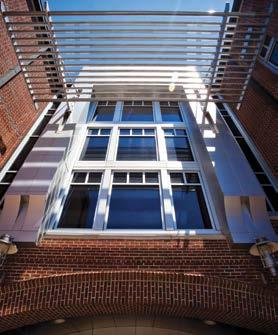
<< 2022-23 YEAR IN REVIEW >> 3 By the Numbers 4 Degrees and Certificate Programs 5 Advisory Board 6 New Faculty and Staff 7 Dr. Ahad Nasab Named Interim Dean of the UTC College of Engineering and Computer Science 8 Marble Rollercoaster Engineering Design Competition 9 Overcoming Adversity: Mechatronics Student Fatimah Musa Won’t Let Visual Impairment Hold Her Back 10 International Symposium at UTC 12 Five UTC Engineering Graduates Get Honors............................................................................ 13 Engineering Students Design Musical Fun for Preschooler with Disabilities 14 University Announces Launch of the UTC Research Institute 15 New Mechatronics Lab Focuses on Robots and Artificial Intelligence ............................16 Concrete and Steel: Civil Engineering Students Build Canoes and Bridges in National Competition 18 I-AMAC Groundbreaking Ceremony 20 History is Made in Chattanooga, at UTC, and at CECS 20 Pnu Skills for VW 21 Reising in Valor 21 Research Experience for Teachers Mixes Collegiate Research with K-12 Teaching 22 David Wade: Recipient of the 2023 University of Tennessee at Chattanooga Distinguished Alumni Award: David Wade 23 Paying it forward: For Alum Cap Nguyen, “UTC Took a Chance on Me and Gave Me a Great Opportunity” 24 Faculty Members Receive Harris Chair Grants to Continue Research 25 Grand Challenges Scholars Program Coming to UTC 26 Faculty Sptlight: Dr. Abdelrahman Karrar 28 UTC Thanks Community Leader and Hamilton County Legislator Who Secured Funding for Moreland Minority Engineering Scholarships 30 UTC Among Seven U.S. Universities to Receive Renewed NSF Funding for Cybersecurity Workforce Development Projects 31 Decathlon Top 10: Interior Architecture and Engineering students design cost efficient, comfortable home 32 UTC recognized as one of the best online master’s degrees by Forbes Advisor 34 Six Fields Robots are Revolutionizing (and How They’re Doing It) 35 EDITOR: Sara Jackson ART DIRECTOR: Bryan Wootan CONTRIBUTING WRITERS: Shawn Ryan, Sara Jackson, Chuck Wasserstrom PHOTOGRAPHY: Angela Foster, Bryan Wootan LEARN MORE: utc.edu/cecs UTC is a comprehensive, community-engaged campus of the UT System. UTC is an EEO/AA/Titles VI & IX Section 504/ADA/ADEA institution. E041301-003-24
TITLE PAGE
TABLE OF CONTENTS
BY THE NUMBERS
<< UTC.EDU/CECS >> 4
$1.5 Million $2 Million $2.5 Million $3 Million TOTAL RESEARCH EXPENDITURES FACULTY AND STAFF DEGREES AWARDED MALE TO FEMALE UNDERGRADUATE TO GRADUATE STUDENT DIVERSITY TOTAL ENROLLMENT $1 Million 1,400 1,500 1,600 1,700 0 2021 2023 2022 2019 1,606 2020 1,627 2021 1,608 2022 1,646 2023 1,711 Male 79% Female 21% Undergrad 87% Graduate 13% 64.9% OF CECS STUDENTS RECEIVE FINANCIAL ASSISTANCE (GRANTS AND SCHOLARSHIPS) Bachelor’s 289 Master’s 52 Black, Asian, American Indian, Hispanic 18% White 82% (non-Hispanic) STUDENT TO FACULTY RATIO 31:1 (Undergraduate and Graduate) 56 Faculty 23 Sta $2.045 mil $2.699 mil $2.563 mil
DEGREES AND CERTIFICATE PROGRAMS
Engineering
Bachelor of Science
- Chemical Engineering (B.S.Ch.E.)
- Chemical Environmental Engineering (B.S.Ch.E.)
- Civil Engineering (B.S.C.E.)
- Civil Environmental Engineering, (B.S.C.E.)
- Electrical Engineering (B.S.E.E.)
- Mechanical Engineering (B.S.M.E.)
Master of Science (M.S.)
- Engineering: Chemical
- Engineering: Civil
- Engineering: Electrical
- Engineering: Mechanical
Ph.D. Programs
- Computational Science with concentrations in + Computational and Applied Mathematics + Computational Engineering + Computer Science
Computer Science and Engineering
Bachelor of Science
- Computer Science (B.S.), with concentrations in: + Cyber Security + Data Science + Software Systems
- Computer Engineering (B.S.Cp.E.)
Bachelor of Applied Science
- Information Technology
Minor Computer Science
Master of Science (M.S.)
- Computer Science with concentrations in + Computer Science + Data Science + Cyber Security
Engineering Management and Technology
Bachelor of Science
- Engineering Technology Management (B.S.), with concentrations in - Construction Management - Engineering Management
Bachelor of Applied Science - Mechatronics Engineering Technology
Minor
Construction Management Engineering Management
Master of Science (M.S.)
- Engineering Management with concentrations in - Construction Management - Engineering Management
<< 2022-23 YEAR IN REVIEW >>
5
College of Engineering and Computer Science
2022-23 ADVISORY BOARD
EXECUTIVE ADVISORY BOARD:
Joe Ferguson Chair, Electric Power Board (retired)
Mack McCarley President, PDM Associates
Mike McGauley Chairman, Fidelity Trust Company
Daniel Pack Dean, UTC College of Engineering and Computer Science
Jim Vaughn Market President, Truist
ADVISORY BOARD:
Rowena Belcher Tennessee Valley Authority Executive (retired)
Joe Brown Vice President, Engineering and Quality Education, Miller Industries
Richard Clark Alumnus, SVP and President, Gulf of Mexico, Kosmos Energy
Jeff Cornett Alumnus, Industry Partnerships and Development, Oak Ridge National Laboratory
Daniel Deas Novonix
Steven Douglas Vice President, Operations Support, Tennessee Valley Authority
Bo Drake VP Economic and Workforce Development, Chattanooga State Community College
Todd Gardenhire Alumnus, Tennessee Senate District 10, Senior Vice President, Morgan Stanley Smith Barney
Leslie Gower Executive Director, Associated General Contractors of East Tennessee
Tom Griscom Alumnus, former Executive Editor and Publisher, former White House Strategist, Q Strategies
Patsy Hazlewood Member, Tennessee House of Representatives, District 27
Jimmy Lail Vice President, Raines Brothers Inc.
John Loudermilk Chief Operating Officer, Birla Carbon
David Marckel Blue Cross Blue Shield
John McNeely Senior Vice President, Avertium
Tremaine Powell Dean of Engineering and IT, Chattanooga State Community College
Bill Raines President and CEO, The Raines Group
Elaine Swafford Director, Chattanooga Girls Leadership Academy
Tim Rausch Chief Nuclear Officer, Tennessee Valley Authority
Sid Verma ASTEC
David Wade President, Electric Power Board
Charles Wood VP Economic Development, Chattanooga Chamber of Commerce
Albert Woodard Alumnus, Founder and Chairman, Kazee, Inc., Healthcare Software and Technology Firm
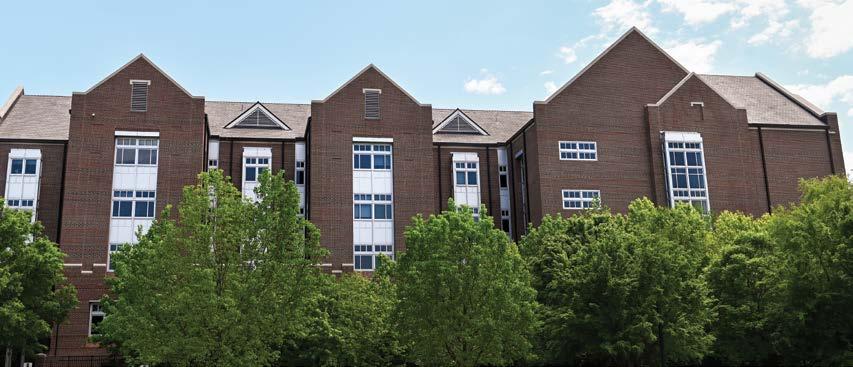
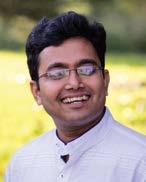
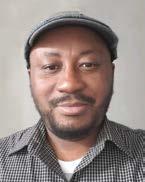
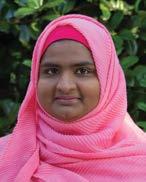
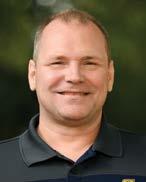
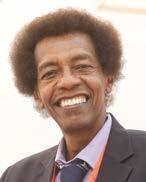
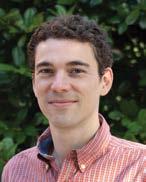
NEW STAFF
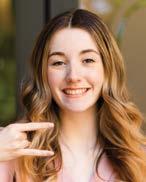
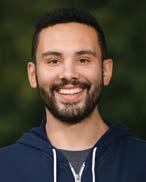
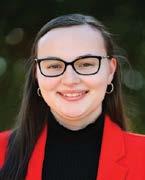
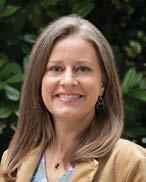
<< 2022-23 YEAR IN REVIEW >> 7
Welcome! NEW FACULTY
Edmund Baffoe-Twum Assistant Professor Engineering Management and Technology
Alex Coker Outreach Coordinator Center for Student Success
Tomojit Ghosh Assistant Professor Computer Science and Engineering
Sharief Babikir Visiting Professor Electrical Engineering
Mackenzie Clark Graduate Recruitment Coordinator
Brooke Stappenbeck Administrative Assistant Office of the Dean
Zakia Tasnim Lecturer Civil Engineering
Shelby Dennis Administrative Assistant Center for Student Success
Bill Worden Professor of Practice Engineering Management and Technology
Andrew Turgeson Assistant Professor of Practice Civil and Chemical Engineering
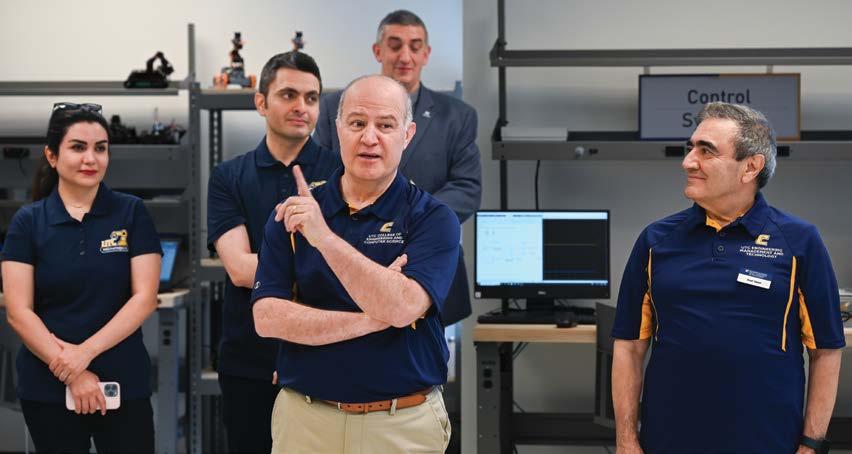
Dr. Ahad Nasab Named Interim Dean of the UTC College of Engineering and Computer Science
Dr. Ahad Nasab has been appointed interim dean of the College of Engineering and Computer Science, the University of Tennessee at Chattanooga. Nasab has been head of the Department of Engineering Management and Technology and Burkett Miller Chair of Excellence since coming to UTC in 2018.
Dr. Jerold L. Hale, UTC provost and senior vice chancellor for academic affairs, announced the interim appointment.
“With over 30 years of experience developing and directing engineering and engineering technology programs, Dr. Nasab has the knowledge and expertise to succeed in this role,” Hale said.
“Ahad brings a wealth of experience and expertise to this position. Given his demonstrated leadership abilities and dedication to academic excellence, I have no doubt that he will offer the faculty, staff and students of the CECS invaluable direction and assistance during this interim period.”
As head of the Department of Engineering Management and Technology, Nasab has overseen the significant growth of the engineering management, mechatronics and construction management programs. He has been at the forefront of creating two cutting-edge labs and growing the newly-established mechatronics program from five students to nearly 100 in just five years.
The engineering management program has earned national recognition during his stewardship, and he has been a driving force in establishing partnerships with numerous community colleges throughout the region.
“The College of Engineering and Computer Science is currently experiencing an exciting and challenging phase,” Nasab said. “There’s a strong momentum in the college’s research areas of machine learning, quantum computing, hypersonic flights, smart power grids, transportation logistics and intelligent robotics. As we move on this trajectory, our primary objective is to engage a larger community of companies and organizations in our activities.
“We also remain steadfast in our commitment to preparing the next generation of skilled professionals to meet the evolving demands of the industry in the southeast region of the country.”
During his lengthy higher education career, Nasab also has taught at Middle Tennessee State University, Vanderbilt University and the UT Space Institute. He is a member of the American Society of Mechanical Engineers, the American Society of Heating Refrigeration and A/C Engineers, the Institute of Electrical and Electronics Engineers, the American Institute of Aeronautics and Astronautics, and the American Society for Engineering Education.
He earned a bachelor’s degree in mechanical engineering from California State University, Northridge, and a master’s degree and a Ph.D. in mechanical engineering from Georgia Institute of Technology.
Nasab succeeds Dr. Daniel Pack, who became dean of the Baylor University School of Engineering and Computer Science.
<< UTC.EDU/CECS >> 8
Dr. Ahad Nasab, center, speaks at the grand opening of the Robotics, Intelligent Systems and Control Lab
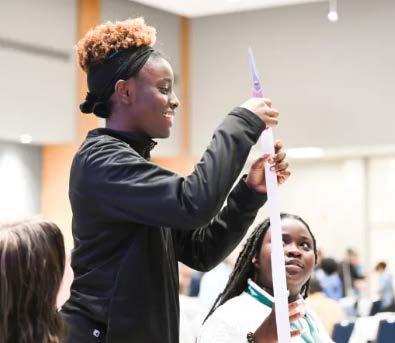
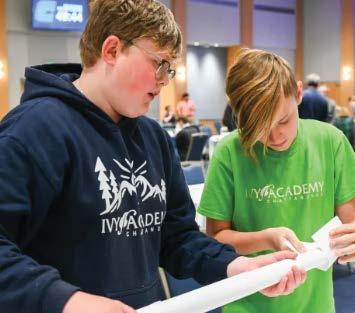
Marble Rollercoaster Engineering Design Competition

On March 10, 2023, over 100 students from sixteen local middle and high schools participated in the 2nd Annual Marble Rollercoaster Competition. Lauren Meyer, currently a senior in mechanical engineering at UTC, came up with the Marble Rollercoaster Competition in 2022 as a way to show prospective students that there are many different layers to engineering. Blake Sweeney, senior in electrical engineering, executed the inaugural competition last year with fifteen teams participating. Participating schools this year were Brown Middle School, Chattanooga Girls Leadership Academy, Chattanooga School of Arts & Sciences Middle and High School, East Hamilton Middle School, East Lake Academy, Ivy Academy, Kingda Ka Kings (homeschool), Ooltewah High School, Orchard Knob Middle School, Sequoyah High School, Signal Mountain Middle and High School, Skyuka Hall, Soddy Daisy Middle School and Red Bank High School.
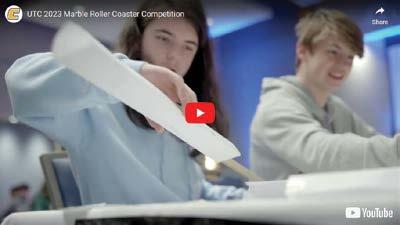
Scan to learn more and to watch a video from the event

<< 2022-23 YEAR IN REVIEW >> 9

Overcoming Adversity: Mechatronics Student
Fatimah Musa Won’t Let Visual Impairment Hold Her Back
by Chuck Wasserstrom
Fatimah Musa spoke excitedly while sharing her work about one of her initial internship projects.
Musa, a University of Tennessee at Chattanooga senior majoring in mechatronics, is on the path to graduating in December 2023. She completed her first internship in Spring 2023 at Qcells, a solar panel manufacturer with a production facility in Dalton, Georgia.
Qcells, a South Korean company, opened its North American Dalton facility in 2019. Musa is one of the company’s first interns.
“My project is very specific to what I’m learning here (at UTC). We’re including PID control (a type of feedback control system used in engineering and industrial automation applications), which is what I studied in control systems. Some of the employees haven’t used these concepts that I studied just a year ago, so I showed them my notes from that class when I studied it. That was cool.”
Cool, indeed. Considering Musa is visually impaired—as in legally blind.
Musa said “visually impaired” is usually the correct term for her case, “but I generalize myself as blind because blind does include the visually impaired. It’s like an umbrella term.
“I can’t see at night; walking around at night is a ‘No’ for me. When the lights are out, it’s a ‘No.’ I can’t read if it’s dim. Sometimes certain colors I get mixed up; it’s not like colorblind, but if I take a colorblind test, I miss enough.”
She said she doesn’t feel sorry for herself; she just wants to be treated equally.
“If you ask anybody who is a vision teacher, the only thing they say you can’t do is be a pilot—and why would I want to be a pilot anyway?” she said with a laugh. “I don’t think anything is holding me back.
“I just want the same opportunities as everybody else.”
<< UTC.EDU/CECS >> 10
Fatimah Musa, born with cone-rod dystrophy, demonstrates some of the equipment that she uses to compensate for her visual impairment.
Dr. Ahad Nasab serves as the interim dean as well as the Burkett Miller Chair of Excellence at UTC.
Nasab said when Musa joined the mechatronics program, he knew she would face unique challenges due to the program’s physical and hands-on nature.
“I was committed to providing her with all the resources she needed to have an enriching educational experience. However, I was impressed by how she deftly navigated the obstacles and barriers that she faced, hardly requiring any extra help,” Nasab said.
“Fatimah’s determination to succeed in her courses and projects without being treated differently was truly admirable. Her independence and refusal to let any physical limitations hold her back serves as an inspiration to me and others. I believe that more people, including myself, could benefit from adopting her positive attitude toward life and overcoming obstacles.”
Her brother, Issa, is attending UTC beginning in Fall 2023. Their father, Akram, owns the nearby University Pizza Deli and Mediterranean Cuisine at the intersection of Vine and Houston streets.
Support comes from outside of the family, too.
Last summer, the College of Engineering and Computer Science launched a women’s mentoring program, pairing Musa with Erin Pasquith— the mechatronic program’s first female graduate.
“I just want the same opportunities as everybody else.”
UC Foundation Professor of Mechanical Engineering Cecelia Wigal taught one of Musa’s early UTC courses.
Wigal said her freshman design course is intended to teach about the design process, emphasizing students with impairments.
Having a visually impaired student “right there in the middle of the class” changed how she teaches.
“Fatimah was very good about going after it; if she needed something, she was open about asking—and that was very helpful,” Wigal said. “I learned you have to think that you might have students with sight issues. Now I use a smart screen and write on it; she could read it directly on her equipment, see it and blow it up.
“I also make sure that I record every single class session and post it so that if there’s anybody who needs it for any reason—sight reasons, attention reasons, anything—they can still go back and see the lecture. She affected how I teach because she helped me become more aware.”
Having a support system, Musa said, is tremendously important. Someone has to drive her back and forth from home to campus and her internship.
She is one of five siblings, which include a pair of UTC graduates in sisters Saada (2019, bachelor’s degree in biology) and Aisha (2021, biology).
Pasquith, a May 2021 graduate, is now a production design engineer at Stanley Black & Decker.
“Mechatronics is a new field itself, so it’s kind of unusual to have any attention and mentorship,” Pasquith said, “but for women in engineering in particular, they succeed and do better when they are pushed and encouraged by peers—and particularly peers that they relate to.
“Fatimah is an extremely driven person. She’s very humble and passionate about engineering and women in engineering— especially people with disabilities in engineering.
Heading into the academic year, one of Musa’s biggest goals was landing an internship.
[Continued next page]

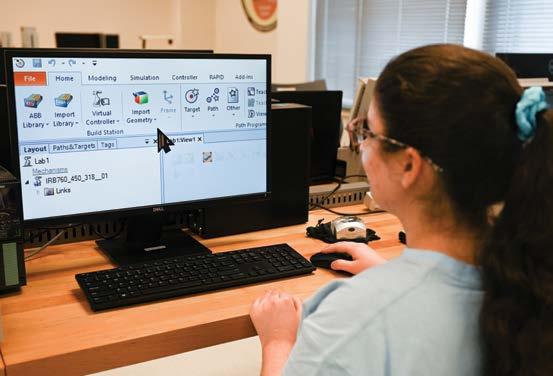
<< 2022-23 YEAR IN REVIEW >> 11
[Fatimah Musa continued]
She admitted she didn’t think it would happen until this summer.
In early February, she was accepted into the Qcells internship program.
The company, recently in the news when Vice President Kamala Harris visited the Dalton plant, was founded in 2007 and has quickly become a leading provider of highquality solar panels for residential, commercial and utilityscale solar projects.
Ryan Law, equipment engineer for the front-end manufacturing process, is Musa’s Qcells mentor.
“She told me the first day, ‘I have a vision impairment, but it’s just an obstacle and I can work around it.’ It doesn’t impair her engineering ability,” recalled Law, a 2019 Kennesaw State University mechatronics, robotics and automation engineering graduate. “I looked at it as a challenge for myself: How well can I explain something to someone to not make that an issue? What project can she focus on that the vision impairment won’t affect all aspects of mechatronics or improvement items? What projects can she handle and be fully capable of doing?
“It was just utilizing what she can do instead of focusing on what she can’t do.”
Musa has been spending 14 hours a week at Qcells in addition to her academic endeavors.
She lauded the company’s inclusiveness and said she was welcomed the first time she stepped through the company’s doors.
“As a visually impaired person, I love that every employee gets their own monitor. I have a really large monitor that I can plug into my laptop—and that’s my setup at home anyway. I’m glad that was a default; I didn’t need to request it,” Musa said. “I use my magnifier and can see everything I need as I navigate certain programs or an Excel sheet or anything like that.”
Law was asked to assess how Musa was doing.
“How’s she doing? I think she’s doing phenomenal,” he said. “She’s very eager to learn and she’s taking on a huge project that I don’t think I would trust many engineers to take on. She’s showing great work and she’s knocking it out.
“Her work ethic is beyond most people I see, and the vision won’t impair or impede her. ”
Scan to learn more about the Women’s Mentorship Program
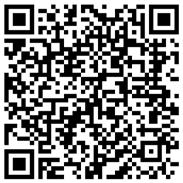
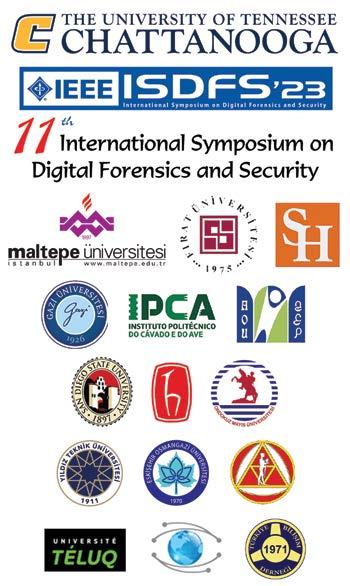
International Symposium at UTC
The 2023 International Symposium on Digital Forensics and Security (ISDFS), chaired by Dr. Asaf Varol from the Department of Engineering and Technology, was held on UTC’s campus in May 2023. ISDFS provides a platform for researchers and experts in academia, industry, and government to exchange ideas and recent developments in digital forensics, cybersecurity and computer science.
Scan to learn more about the event

<< UTC.EDU/CECS >> 12

Five UTC College of Engineering and Computer Science graduates were nominated by their business units to compete for the TVA Engineering of the Year award. (L-to-R, Stephen Craven, Gabe Kurtz, Clay Hoover, Jason Moon and Matthew Wilson.)
Five UTC Engineering Graduates Get Honors
In February 2023, five UTC College of Engineering and Computer Science graduates were recently honored as the Engineer of the Year for their respective business units. These individuals were presented with plaques by TVA CEO Jeff Lyash at a luncheon at the Westin Hotel.
Stephen Craven – BSE 1999, Transmission and Power Supply Engineer of the Year
Stephen Craven is involved in all aspects of cybersecurity for TVA substations and power system communications.
Clay Hoover – BSME 2010, Financial Services Engineer of the Year
Clay Hoover is an energy engineering professional who specializes in commercial and industrial energy efficiency, strategic energy management, and energy efficiency program design and management.
Gabe Kurtz – BSEE 2001, Resource Management and Operations Services Engineer of the Year
Gabe Kurtz leads the NERC O&P team and advocates for highly secure power grids, as well as for high school students, for innovation, for inclusivity, and for opportunities for everyone.
Jason Moon – BSCE 2008, TVA Nuclear Engineer of the Year
Jason Moon has been working in the Sequoyah Civil Engineering Design Group for the last six years performing engineering evaluations for replacement
equipment and design modifications. Jason specializes in seismic analysis of structural components and pressure vessels and uses that experience to ensure the safety of the public and plant personnel.
Matthew Wilson – BSE 2000, Power Operations Engineer of the Year
Matt Wilson brings over 22 years of air emissions pollution control experience across multiple TVA plants and he currently serves as Power Operations, E&TP’s Pollution Controls Equipment SME.

Stephen Craven, PH.D., The 2023 Federal Engineer of the Year Award Winner by the NSPE.

Scan to learn more and to watch a video from the event
<< 2022-23 YEAR IN REVIEW >> 13

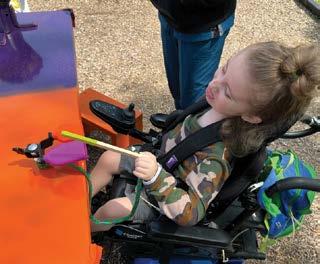
Engineering Students Design Musical Fun for Preschooler with Disabilities
The table comes in twos: Two drums, two xylophones, two percussion blocks.
It’s specifically designed for one, but it is used by many.
Benny, a 4-year-old preschooler at Soddy Elementary School with cerebral palsy, needed something he could use for fun during recess. Four engineering students—all freshmen—at the University of Tennessee at Chattanooga gave him one.
In the College of Engineering and Computer Science’s Introduction to Engineering course in the Department of Mechanical Engineering for spring semester 2023, students designed and built a table with musical instruments attached and just the right height for Benny, who’s confined to a wheelchair.
The UTC students integrated safety, durability, and ease of use into their plans so Benny could play whichever instrument he wanted without trouble. They also made sure there was enough room for other pre-schoolers to join in any impromptu concert.
“Benny loves music and playing instruments. Now he is able to bring that love outside and share it with his friends,” said Sarah Harmer, exceptional education instructor at the Soddy Elementary.
The UTC students said they had a genuine sense of satisfaction watching Benny and other pre-schoolers having fun on the table they’d built.
“This whole semester’s hard work actually paid off for something good, and it was just a great feeling,” said Isaac Wheeler, a mechatronics major.
Other team members were Solomon Jackson and Andrew DeVries, both computer engineering majors, and Blaine Souder, a mechanical engineering major.
The projects are a requirement in the Introduction to Engineering course taught by Dr. Cecelia Wigal, a professor in the Mechanical Engineering Department. In 2023, eight teams, each with three to six members, had the semester to complete their projects and prepare presentations to explain their concepts, constraints, methods, materials and final product.
For more than 15 years, representatives from Chattanooga’s Signal Centers that serve children and adults with disabilities and their families have brought a stack of projects needed by their clients to the Introduction to Engineering class. Students choose the project they want, then try to turn it from an idea into a reality.
This spring’s projects included a stand to hold a bow for a Loftis Middle School student who competes in archery tournaments but can use only his left arm; and a sensory walk with rocks, turf, molded plastic and other tactile materials for Middle Valley Elementary School students on the autism spectrum.
Some of the complicated projects may seem a bit above freshman pay grade, and Wigal said that’s the point.
“They have to stretch and learn. The object is that they will learn on their own,” she explained.
<< UTC.EDU/CECS >> 14
Benny plays with the percussion blocks on the musical table designed and built by UTC engineering students.
From left, Isaac Walker, Solomon Jackson, Blaine Souder and Andrew DeVries
by Shawn Ryan
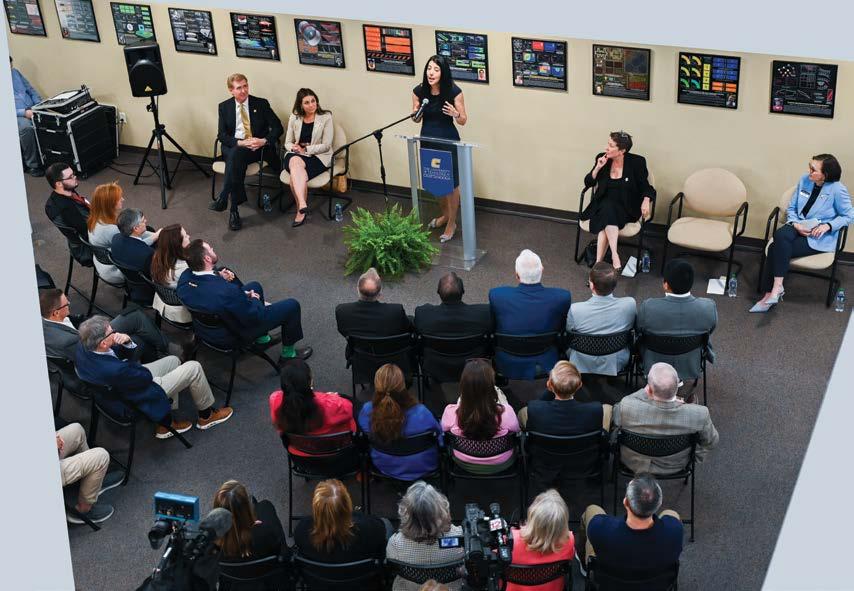
University Announces Launch of the UTC Research Institute
The University of Tennessee at Chattanooga is establishing the UTC Research Institute as a strategic initiative launched to pursue increased research funding, interdisciplinary collaboration across campus, and support for community and local industry priorities.
On Monday, May 1, 2023, Chancellor Steven R. Angle introduced the new initiative at the Multidisciplinary Research Building on the UTC campus—where the UTC Research Institute will be headquartered.
The Research Institute will be led by Dr. Mina Sartipi, founding director of the UTC Center for Urban Informatics and Progress (CUIP) and Guerry Professor of computer science and engineering. Dr. Sartipi, whose title will be executive director of the institute, also holds a joint appointment at Oak Ridge National Laboratory.
“This new institute will help UTC move forward and realize our research goals,” Angle said. “The heart of the UTC Research Institute is impactful and broad cross-disciplinary research that will help fast-track Chattanooga’s place as a hub for mobility electrifications, connectivity and automation.
The Research Institute will narrow and intensify the University’s focus on strategic areas of research funding. Two initial focus areas are transportation (intelligent transportation systems, electric vehicle and battery technologies, human factor, automation, multimodal systems, policy and planning, cyber security, privacy and infrastructure) and quantum technologies (computing, sensing and networks).
“Dr. Mina Sartipi is an incredible scientist, scholar, leader and educator who has maximized every opportunity to engage students, the campus community and the surrounding community in finding solutions to realworld problems,” said UTC Vice Chancellor for Research and Dean of the Graduate School Joanne Romagni. “As executive director of our new Research Institute, she will place the University in a better competitive position to pursue research funding and will position research teams to make greater scientific, technical, societal and economic impacts.”
<< 2022-23 YEAR IN REVIEW >>
A press conference announcing the launch of the UTC Research Institute. Dr. Mina Sartipi was named executive director of the institute.
15

New Mechatronics Lab Focuses on Robots and Artificial Intelligence
by Shawn Ryan
Mechatronics is the combination of mechanical skills with electronics, control mechanisms and systems of integration.
Housed in the Engineering Management and Technology department, the mechatronics program has grown in popularity, reflecting the growth of mechatronics worldwide.
To prepare UTC students for post-graduation careers, the Robotics, Intelligent Systems and Control Lab opened on Thursday, May 4, 2023, in the CECS building. It’s the second mechatronics lab in the college and is across the hall from the first, which opened in 2021.
“A lot of the students in the field of engineering and technology are really hungry to work with machines, work with the technology,” said Dr. Ahad Nasab, interim dean and Burkett Miller Chair of Excellence who created of the mechatronics program.
“Our engineering and technology students want to learn all the fundamentals of engineering science, of course, but they’re really longing for hands-on activities, basically touching that technology,” he said.
The first mechatronics lab focused on automation, such as the systems used by food and beverage companies to prepare, package and ship their products with minimal human interaction.
The new lab will focus on two intertwined areas: artificial intelligence and mobile mechatronics, also called mobile robots.
Industry is reliant on robotics. In most cases, the robots are controlled through artificial intelligence.
“Four-wheeled, low-to-the-ground mobile robots— picture more-sophisticated, muscular Roombas—are used throughout the world, said Dr. Gokhan Erdemir, associate professor in engineering whose expertise is robotics and who helped set up the new lab.
Capable of lifting a ton or more, mobile robots can carry large machinery, small parts, even paperwork, through manufacturing facilities. They can learn pathways, avoid walls, recognize colors and discriminate between one item and another, for instance, an onion from a crab.
A human-like robotic arms, among other jobs, can pick up items, manipulate them into the various positions for the next step in manufacturing or assemble other machines,” explained Dr. Erkan Kaplanoglu, interim department head and director of the Biomechatronic and Assistive Technology Lab and associate professor in mechatronics.
He cited the Volkswagen assembly plant in Chattanooga as an example.
“At Volkswagen, they use them for their painting shop and body shop. They’re very precise, and they do not get tired,” Kaplanoglu said.
“Knowledge of robotics and artificial intelligence gives mechatronics students a leg up once they graduate,” Erdemir said.
“Students are capable of solving problems because they know the essential information about electrical engineering, software engineering, mechanical engineering and computer engineering,” he said.
“So, if there is a problem, they can find the solution very easily because they know the different fields.”
<< UTC.EDU/CECS >> 16
Robotics, Intelligent Systems, and Control Laboratory
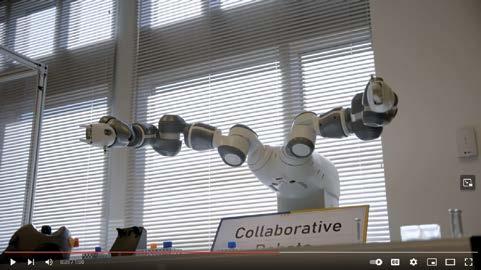
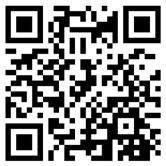
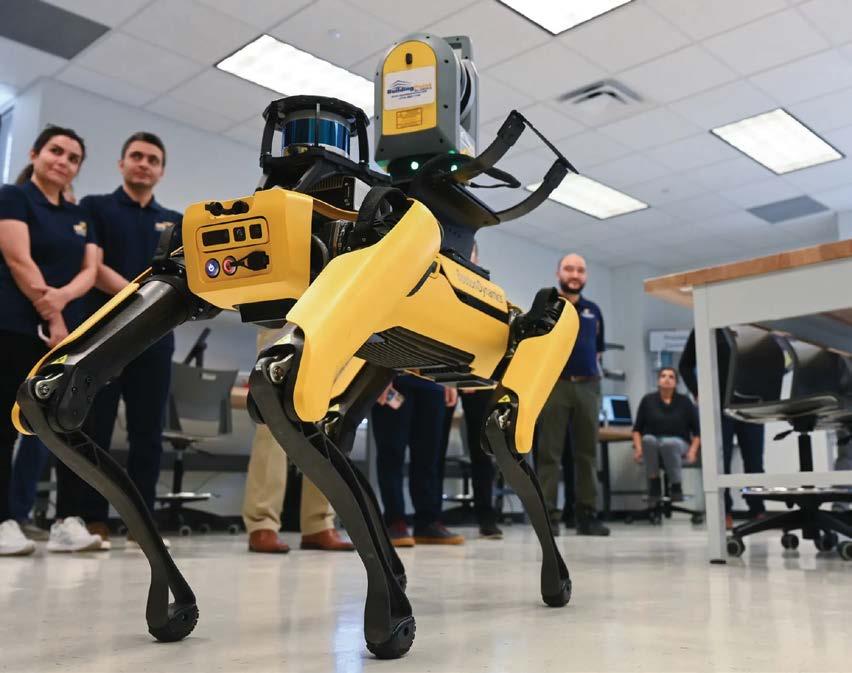
<< 2022-23 YEAR IN REVIEW >> 17
Scan to watch a video from the event
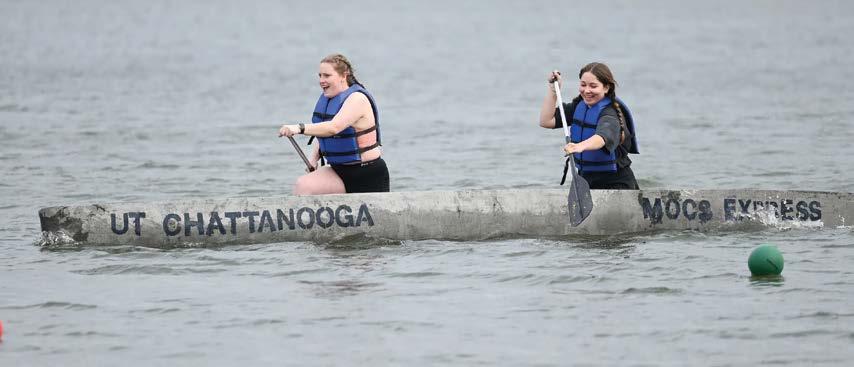
Concrete canoe races and steel bridge building took place Friday, March 31, at Chester Frost Park as part of the American Society of Civil Engineers Mid-South Student Symposium.
Concrete and Steel: Civil Engineering Students Build Canoes and Bridges in National Competition
Along with 14 other universities, UTC students competed on Friday, March 31, 2023, in the Concrete Canoe competition, held in Chester Frost Park—about 30 minutes north of Chattanooga.
The canoe races were one of more than 20 events scheduled at the American Society of Civil Engineers MidSouth Student Symposium, hosted by UTC for the first time since 2015.
Held from March 30 through April 1, the symposium also included a competition to construct a 24-foot bridge over a “river” whose banks were marked by strips of tape on the floor; building a wall from 150 pounds of sand within a matter of minutes; designing solutions to visibility issues at several Chattanooga intersections; and socializing events for members of each university to meet one another.
Chris Frishcosy, director of labs for the UTC Department of Civil Engineering and one of the symposium organizers, said the networking and personal contacts students make during the event is one of its key takeaways.
“If there’s one thing they leave with, I think that they’ll say UTC had a great social record,” he said.
National finals for the concrete canoe race were held during June 10-13 at the University of Wisconsin-Platteville. In the Chattanooga races, UTC came in second place behind Lipscomb University. UT Knoxville took third place.
Finals for the bridge-building competition were held June 2-3 at the University of California San Diego. Harding University won first place in Chattanooga, Christian Brothers University was second and Vanderbilt University was third.
The Concrete Canoe competition included all-female, all-male and coed teams. At Chester Frost Park, each school gave distinctive names for its canoe, such as “Medusa’s Gaze” from Christian Brothers; “Poseidon” from
Vanderbilt; “Raging Red Wolves” from Arkansas State University; and “The Dreamboat” from Lipscomb.
Naturally, the UTC canoe was named “Mocs Express” which, in the Female Slalom race, held two students dressed as hammerhead sharks.
Although canoes were tested at the various schools where they were made, some failed once they hit the water. Two sunk; one broke in half; one developed a serious leak.
Members of the UTC bridge-building team also were at Chester Frost Park on March 31, constructing their bridge—girders, struts and other pieces painted blue and gold—on a parking lot. They and several other university teams gave judges a chance to look at their bridges with an eye on aesthetics.
Later that day, the teams took their bridges completely apart. They transported the components

<< UTC.EDU/CECS >> 18
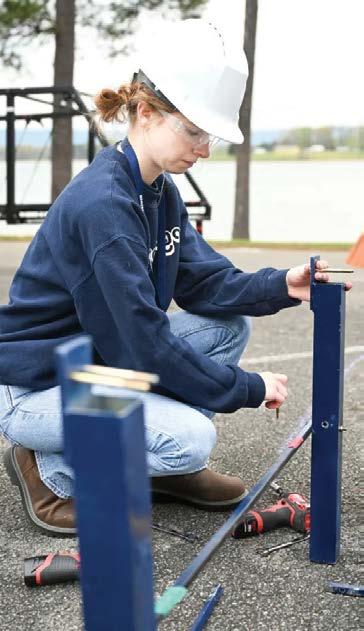
to the Chattanooga Convention Center, where they would rebuild them on Saturday, April 1, and let judges determine whether the bridges fit the precise specifications demanded by the competition.
UTC hadn’t competed in the bridge-building competition since 2019, so there was extra pressure on the team to, at the very least, not be disqualified for tiny mistakes.
David Madrid, a senior in civil engineering at UTC and graduate of Springfield (Tennessee) High School, said the team began designing the bridge about eight months ago. They ran into technical problems when they ran tests a few weeks ago to see if their measurements were correct. Sometimes they weren’t.
“It was definitely frustrating, but we just came to terms on it,” he said. “We were actually thinking of calling it quits and thinking of just participating in the aesthetics, but we were, ‘No, we’ve put in all this work so far, we might as well just try to see it through the best we can.’
“As long as we don’t get disqualified, that’s a win for us, considering all the adversity we faced.”
No worries; the UTC team left happy. Although they didn’t place in the top three, their bridge met the required specifications.
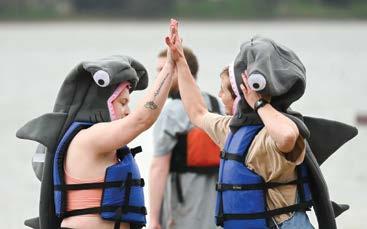
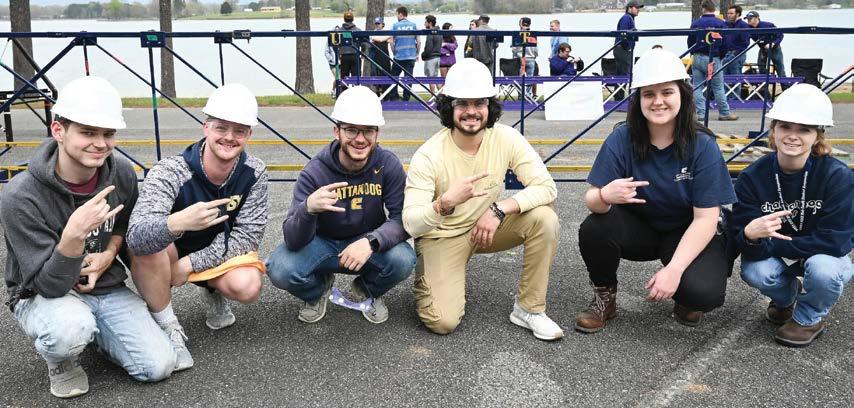

I-AMAC Groundbreaking Ceremony
The groundbreaking ceremony for the Innovation and Advanced Manufacturing Application Center (I-AMAC) took place on Monday, February 13, 2023. The new center will be located on the 700 block of M.L. King Blvd. “This building will enable our faculty, students and industry partners to continue to expand our capability to train future workforce and develop new solutions for manufacturing and related industries, resulting in new jobs and new manufacturing methods, as well as new businesses,” said Dr. Daniel Pack, former dean of the College of Engineering and Computer Science.
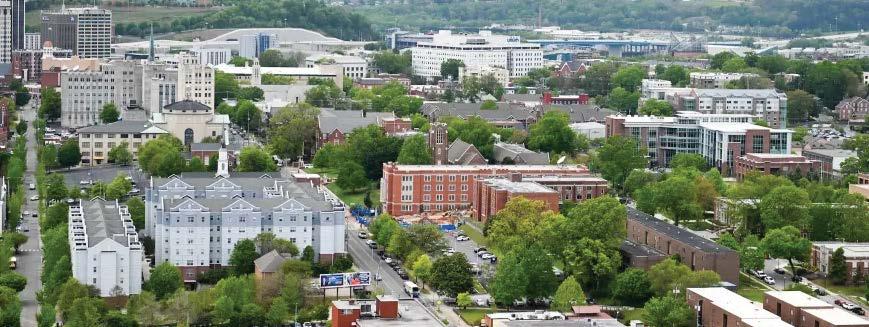
Chttanooga, UTC and CECS Receives Historic Grant Funding for Living Testbed
Chattanooga will be home to the nation’s largest electric vehicle “living testbed”, thanks to $9.2 million received by the city and scientists at the University of Tennessee at Chattanooga with municipal, private industry and research partners. Chattanooga is the only Tennessee site awarded one of the 10 U.S. DOT grants totaling $45.2 million. All funded projects involve the use of advanced intelligent transportation systems technologies that will improve mobility and safety, provide multimodal transportation options and support underserved communities, according to DOT. $4.5-million from the U.S. Department of Transportation grant award—the single-largest of its kind in UTC history, will be complemented by another $4.7 million from industry
partners, UTC, Chattanooga city government and EPB. The proposal was submitted by Chattanooga’s Smart City program and its development was led by Dr. Osama Osman, a former UTC CECS civil engineering assistant professor and chief scientist and smart transportation thrust Lead for UTC’s Center for Urban Informatics and Progress (CUIP) and CUIP Founding Director Dr. Mina Sartipi, also Guerry Professor in the UTC Department of Computer Science and Engineering. Co-PIs also include Dr. Ignatius Fomunung of the Civil and Chemical Engineering Department, Dr. Vahid Disfani of the Electrical Engineering Department, and Austin Harris, CUIP testbed manager.
<< UTC.EDU/CECS >> 20
Pnu Skills for VW
A partnership has been established between Volkswagen and CECS to prepare VW employees for the future of automobile manufacturing. As Volkswagen transforms its Chattanooga factory to become the company’s North American hub for electric vehicle assembly, a key priority is updating the skills of new and current employees in positions related to electric vehicles.
To support these efforts, VW’s training facility—the Volkswagen Academy in the local factory—worked with UTC’s College of Engineering and Computer Science and Center for Professional Education to offer two new customized courses in advanced automated manufacturing.

The 14 Volkswagen team members enrolled in the courses had recently taken on new roles and responsibilities at the Chattanooga facility. Interim Department Head and Associate Professor Erkan Kaplanoglu was the instructor for two weeklong courses, including “Introduction to Mechatronics,” “Introduction to Pneumatics” and “Introduction to Electropneumatics.”


Reising in Valor
UTC celebrated Veterans Day with numerous events, including the Chancellor’s Annual Veterans Day Luncheon for students, faculty and staff who are veterans or active military. UC Foundation Associate Professor of Electrical Engineering Dr. Don Reising, who served in the U.S. Army from 1995 to 1999 and the Ohio Army National Guard from 1999 to 2005, was the keynote speaker.
Scan to learn more about the event
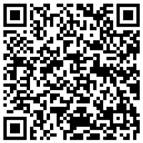
<< 2022-23 YEAR IN REVIEW >> 21
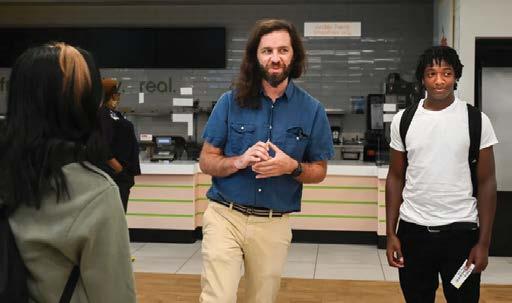
The challenge was tasty: Make pavement out of chocolate and graham crackers. Then eat it.
The task was assigned by Forest “Juney” Shober to his high school science class when he taught at The Howard School.
“If you ask, ‘Hey, do you think kids would like to make their own little snack and eat it? Of course, they’re going to say, ‘Yeah.’ That seems kind of silly, right?” said Shober.
“But you can put it in the context of: Let’s take good, positive experiences and make it part of this whole thing where the kids are learning.”
Shober developed the idea for edible pavement after the Research Experience for Teachers (RET). The six-week program at the University of Tennessee at Chattanooga helps local K-12 teachers find ways to engage their students beyond listening to a lecture and looking at words on a whiteboard.
As part of the National Science Foundation-funded RET, for the past three summers faculty from the UTC College of Engineering and Computer Science have worked with teachers in the Hamilton County School System and others on project-based learning that is both effective and fun for students.
This summer, 15 teachers from schools in Hamilton and Marion counties attended the RET. A total of 29 teachers have participated in it since it began.
“We are proud to have created the necessary partnerships to provide all the support we can to teachers and in turn see exemplary results by teachers,” said Dr. Raga Ahmed, associate professor in the UTC Department of Electrical Engineering and co-director of the RET.
Dr. Mbakisya Onyango, UC Foundation associate professor of civil engineering, co-directed the RET.
Lora Taylor, a teacher at Tyner Middle Academy who attended this summer’s RET program, said she has “learned to incorporate project-based learning techniques into my lesson plans, encouraging students to explore real-world problems and devise their solutions.”
“This approach not only enhances their critical thinking skills but also fosters a sense of ownership and enthusiasm for their learning,” she said.
While RET focuses on science, technology, engineering and mathematics (STEM), its lessons can be used across the educational board.
Research Experience for Teachers Mixes Collegiate Research with K-12 Teaching
Juney Shober talks to University High students during their first day on campus. Shober recently participated in a six-week Research Experience for Teachers program led by UTC College of Engineering and Computer Science faculty.
by Shawn Ryan
“Programs like RET support teachers and students. Smart cities like Chattanooga need ‘smart education,’” said Jasmine Johnson, who teaches English Language Arts at Tyner Academy and participated in this summer’s program. She graduated from UTC in 2012 with a bachelor’s degree in English and American language and literature.
Shober, who participated in the RET in 2021, 2022, and 2023, said the program has helped him build confidence, “Oh, I can do this and the kids are going to love it.’”
He now is the science teacher in the new University High at UTC, a two-year program launching this fall semester and is designed to help Hamilton County high school students get a head start on a college degree. Fifty-six students from county schools are enrolled in the program’s initial class.
Shober was so impressed with his RET experiences that he said he would use them in his University High classes.
In his lesson about road construction at Howard, he had students melt chocolate and mix it with crushed graham crackers to simulate the asphalt and gravel used to make pavement. Building bridges and walls, they then tested the strength of their concoction with weights and applied pressure. When the experiments were over, the students snacked on their “pavement.”
“You can do things that are fun and you’re learning; the two are not exclusive to each other,” Shober said. “There’s certainly overlap and it helps teachers navigate that and figure out, ‘How do we do these meaningful experiences that the kids are enjoying, but they’re also getting some benefit from on an academic level.’”
UTC faculty who worked as mentors in the latest RET are:
• Wolday Abrha, visiting assistant professor in engineering management and technology
• Jejal-Reddy Bathi, assistant professor in civil engineering
• Vahid Disfani, associate professor in electrical engineering
• Erkan Kaplanoglu, department head and associate professor in engineering management and technology
• Abdelrahman Karrar, UC Foundation professor in electrical engineering
• Abdul Ofoli, department head and professor in electrical engineering
<< UTC.EDU/CECS >> 22
David Wade Recipient of the 2023 University of Tennessee at Chattanooga Distinguished Alumni Award

David Wade has been recognized by the University of Tennessee at Chattanooga as the 2023 Distinguished Alumni Award winner. The Distinguished Alumni Award is the highest annual commendation presented to a UTC alumnus or alumna and recognizes extraordinary service to their alma mater, field and community. Wade is a 2004 UTC graduate.
“David is an extraordinary leader in our community who we are proud to recognize with this distinctive honor,” UTC Chancellor Steven R. Angle said. “Our campus community is a better place because of his support and achievements.”
While Wade began his journey at UTC directly out of high school, he left the University after one semester and joined the workforce. A few years later, he began working at EPB in an entry-level position assisting linemen in 1983. Wade progressed in his career at EPB while returning to take evening courses at UTC where he received a bachelor’s degree in engineering management before eventually being named the president and CEO of EPB in 2016. Wade has continued to serve UTC as a member of the advisory board for the College of Engineering and Computer Science.
Among his many notable accomplishments, Wade led EPB’s effort to design and build Chattanooga’s community-wide fiber optic network which also served as the communications backbone for constructing the nation’s most-advanced, automated electric power distribution system. Wade’s focus
on fostering innovation has led to the development of groundbreaking projects such as EPB Quantum NetworkSM powered by Qubitekk, the first commercially available quantum network in the nation, and EPB Gig25, the first community-wide 25 gig internet in the nation.
During the COVID-19 pandemic, Wade led the effort to launch HCS EdConnect, which provides internet access at no charge to families in need with students in Hamilton County Schools. Unlike other internet access initiatives launched during the pandemic, HCS EdConnect is a permanent program which has grown to enable internet access to nearly 17,000 students who, together with their family members, total more than 28,000 people who have access to fiber optic internet for learning, applying for jobs, remote work and telehealth.
“While I am thankful to UTC for this recognition, my career accomplishments reflect the teamwork of my EPB colleagues and the tremendous support of my family,” Wade said. “My time at UTC gave me the tools to advance my career. My career success is rooted in my desire to help my neighbors, and I’m grateful I get that opportunity.”
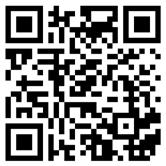
Scan to watch a video from the interview
<< 2022-23 YEAR IN REVIEW >> 23

Paying it forward: For Alum Cap Nguyen, “UTC Took a Chance on Me and Gave Me a Great Opportunity”
As the Vietnam War came to an end in 1975 with the communist regime in North Vietnam overrunning South Vietnam, Nguyen and eight members of his family, including his parents, boarded a fishing boat to escape the deadly chaos. About 40 other people joined them.
“Everybody left if they could,” said Nguyen.
They first sailed to Singapore, which gave them food and water but wouldn’t let them stay. The same thing happened in the Philippines. They were finally welcomed to Guam, a U.S. territory.
Sponsored by the Church World Service chapter at Red Bank Baptist Church, Nguyen and his family were brought to Chattanooga, where he enrolled at the University of Tennessee at Chattanooga in 1976 and graduated in 1980 with a degree in electrical engineering.
“My story is about American generosity and opportunity,” said Nguyen, an honors student and an active Institute of Electrical and Electronics Engineers member while at UTC. “I believe that UTC took a chance on me and gave me a great opportunity.
“It provided me the skill set that changed my life outlook drastically.”
To pay the generosity forward, Nguyen has started a $25,000 scholarship for students in the College of Engineering and Computer Science who have demonstrated successful academic performance and may need financial aid to attend college.
“I hope this small investment will make a real difference in someone’s life in a similar way that other people helped me when I was in need.
“I want to put a nice bow on my career and transfer my experience to the next generation. That’s how I think that paying forward is a good way. UTC was my love and is my love.”
by Shawn Ryan
Kim White, vice chancellor of advancement at UTC, said Nguyen’s life story is “inspiring and it really does show how education and opportunity changes lives.”
“His story’s all about determination and opportunity, and I think that’s really how students succeed, coming here wanting to have a better life and wanting to grow and excel.”
Nguyen is now a project manager for NASA in Houston and working on Artemis II, the project that plans to launch a manned fly-by mission to the moon and back in November 2024.
In March 2023, Nguyen won the Johnson Space Center Director’s Innovation Group Achievement Award from NASA for the work he and his team did on software for the project.
“NASA has many talents with much higher academic credentials than me. They also have many other skills and knowledge that I do not have,” he said. “I am so grateful that I have an opportunity of working on something that I really love. I hope my work here will contribute to the future space exploration.”
Nguyen’s interest in space exploration began in 1969 when he was 13 and heard U.S. astronaut Neil Armstrong set foot on the moon and say, “One small step for man; one giant leap for mankind.”
“That statement gave me such a good impression at a young age,” Nguyen said.
When he fled Vietnam in 1975, he was one month shy of graduating from high school. He was proficient in math, but his English was not, which was a problem after arriving in the U.S.
“I studied English in high school, and I could write and read fairly well for my school work, but I had great difficulty in listening and in conversation,” he explained.
<< UTC.EDU/CECS >> 24
Members of Red Bank Baptist and administrators from UTC helped him take the required tests and improve his English to the level required for acceptance as an engineering student at UTC.
He excelled in his studies. As a member of the Honors program, he was chosen as the best freshman engineering student in 1976 and was awarded scholarships from the Chattanooga Engineers Club. He graduated in 1980 with a bachelor’s degree in electrical engineering.
“UTC had offered me a lifetime opportunity. It provided me the skill set that changed my life outlook drastically,” he said.
As the lone breadwinner in his family, he had to work while going to school. He landed a job at Swope Equipment and Supply Co. as a janitor.
“I cleaned up the shop, and I cleaned the warehouse,” Nguyen said. “Unfortunately, I cleaned diligently and it was so clean, so sparkly clean, I ran out of a job.”
But his obvious work ethic caught the eye of Sam Swope, a member of Red Bank Baptist. Nguyen said Swope gave him a new job unloading parts from
18-wheelers at the warehouse. So Nguyen took classes during the day and worked at night.
“One night, for some reason, Mr. Swope came back to the warehouse, and he saw me working. Later on, he opened up a gas station, so he asked me, ‘You want to take care of my gas station?’ and I said, ‘Yes, I would love to.’”
As manager, Nguyen was able to hire his father, “So now we have two incomes, and I don’t have to work so much overtime. I have more time for school.”
After graduating from UTC, he worked in private industry for several years, then started his own engineering company, which he ran for 12 years. He retired but got bored, he said, and he’s now been at NASA for 14 years.
With his scholarship, he hopes to help other students achieve their goals like he was helped when he was a student at UTC.
“I hope this small investment will make a real difference in someone’s life in a similar way that other people helped me when I was in need.”
Faculty Members Receive Harris Chair Grants to Continue Research
Four University of Tennessee at Chattanooga professors have been selected to receive Commercialization Acceleration grants from the Clarence E. Harris Chair of Excellence in Entrepreneurship. The money helps the faculty members further their research.
Professors and their specific projects:
Dr. Abdul Ofoli, department head and UC Foundation professor of electrical engineering: Building SolarEagle, a dronebased AI system to detect and assess damaged solar panels.
Dr. Hong Qin, department head and professor in the College of Computer Science and Engineering: Using the Centers for Disease and Control’s FluSight program, which helps predict the possible extent of seasonal flu outbreaks, his research hopes to develop computer-based analysis based on genetic information from the virus to create a more accurate method to predict the spread of flu.
Dr. Donald Reising, UC Foundation associate professor of electrical engineering, and Joshua Tyler, graduate research assistant in electrical engineering: A method to adjust digital audio to improve sound quality, especially with hearing aids.
Dr. Sungwoo Yang, assistant professor in the Department of Civil and Chemical Engineering: Developing a cheaper and easier-to-use version of aerogel, a thermal insulating material.
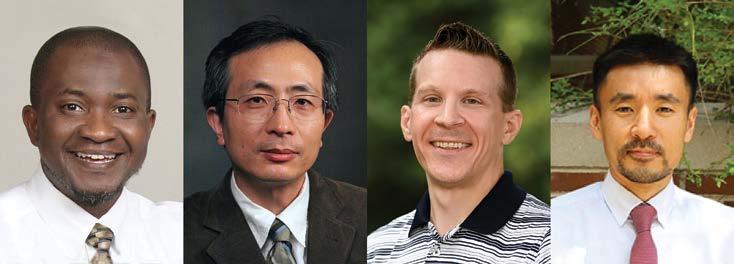
<< 2022-23 YEAR IN REVIEW >> 25
From left: Dr. Abdul Ofoli, Dr. Hong Qin, Dr. Donald Reising, Dr. Sungwoo Yang
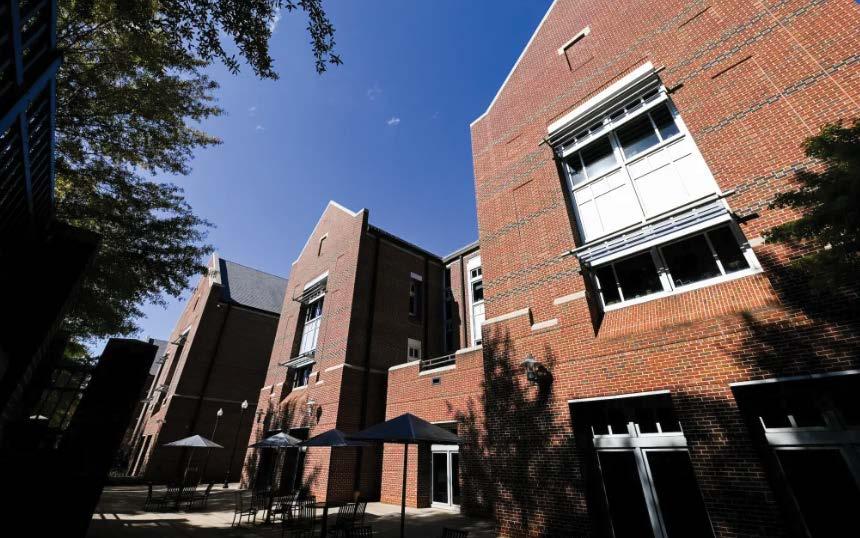
Grand Challenges Scholars Program Coming to UTC
by Chuck Wasserstrom
The University of Tennessee at Chattanooga will be the newest institution participating in the Grand Challenges Scholars Program, an initiative supported by the National Academy of Engineering to educate a new generation of engineers expressly equipped to tackle some of the most pressing issues facing society in the 21st century.
The Grand Challenges Scholars Program, implemented at fewer than 100 universities nationwide, is a curriculumintegrated, co-curricular and extracurricular program with five competencies designed to prepare the next generation of students to address society’s grand challenges. Once accepted into the GCSP, each institution creates its own program for implementing the competencies.
Fall 2023 marks the initial semester of UTC GCSP partnership between the College of Engineering and Computer Science and the Honors College—with participation from the other colleges on campus.
“This will be the first college- or department-specific honors program on campus beyond the Honors College,” said UTC Honors College Dean Linda Frost, “and I believe this is the first Grand Challenges anywhere that’s an actual collaboration between an Honors College and a College of Engineering.”
According to the GCSP website, an international group of leading technological thinkers were asked around 15 years ago to identify the Grand Challenges for improving life on the planet in the 21st century.
These 14 Grand Challenges, which range from making solar energy economical to securing cyberspace to providing access to clean water, were announced in 2008 and fall into four themes: sustainability, health, security and joy of living. The GCSP was then established to incentivize engineering programs to focus on these big-picture issues.
Frost has been involved with bringing the GCSP initiative to UTC for several years, along with—among others—former College of Engineering and Computer Science Dean Daniel Pack, UC Foundation Professor of Mechanical Engineering Cecelia Wigal.
Frost was introduced to the program at a national conference, saying she was fascinated after learning directly from undergraduate students about the types of projects they were involved in.
“I love the Grand Challenges model and find it extremely interesting,” Frost said. “You can tell that engineers put it together because it’s sustainable, and while it’s driven by engineering, it’s very interdisciplinary.”
<< UTC.EDU/CECS >> 26
Students participating in the GCSP will have to demonstrate competency in each of the five Grand Challenges requirements, including:
• Mentored research and creative endeavors
• Understanding multidisciplinary engineering systems solutions developed through personal engagement
• Comprehending entrepreneurship through the viability of business models for solution implementation
• Recognizing different cultures through multicultural experiences to ensure cultural acceptance of proposed engineering solutions
• Understanding that engineering solutions should primarily serve people and society, reflecting social consciousness
Frost said she can envision undergraduate research on subjects like water quality, solar energy economy and cybersecurity, saying that Chattanooga is a great place to do these projects because “there are a lot of things happening in Chattanooga that make this an even better bet for this kind of program to be successful.”
“It’s that interdisciplinary approach which is what this is all about,” Frost said. “The students shape their undergraduate experience in such a way that it all feeds into their culminating work—whatever their senior project is. At UTC, it will be an honors thesis and it will be focused on the Grand Challenge that they chose.
Each student gets to create their own path; for instance, a student on a mechanical engineering track might work with a faculty member in entrepreneurship—and get a minor in that field.
This is, in my view, a way to create a connection for students to see how what they’re doing matters for the betterment of humanity. This program brings people together to help illustrate to students a path to connect what they’re learning and studying—and makes it something bigger.
One of the tenets of the new program is that it will enable students to make a visible impact on their world as part of their degree programs by providing research opportunities and support to UTC faculty whose research interests coincide with the Grand Challenges.
“If they can see the big picture they will make those connections,” Wigal said. “This Grand Challenges program allows them to build how they want that experience and what they want to learn. It helps them build that experience and become immersed in that learning.
“To see all the opportunities on the campus, have faculty be a part of the student experience, and then see how our students can be involved in the community to expand their experiences—that’s so exciting to me.”
Community involvement is essential. Part of the requirement for students is that there’s some sort of community engagement at some level right through this program.
“Community engagement, internships, things like that. Through that, they’re touching some topical challenges,” Loveless said. “From our point of view, it’s a rewarding part of the experience. We’re conduits for them in helping them realize their potential, so we’re here to help them make those connections and help them identify what opportunities exist—and make those happen.
“This program is all about bringing people together to help students see a path to connect what they’re learning and studying toward something bigger. This is a way for us to connect across campus to our community, provide a path for students to embrace those challenges, and see how they’re doing in their curriculum and activities as a college student matter in the big picture. That’s the way I see it.”
Added Wigal, “For faculty, you really get to know the students and help them find their path. I’m so excited to learn about what’s out there, see what the students get excited about and see what they can bring.”
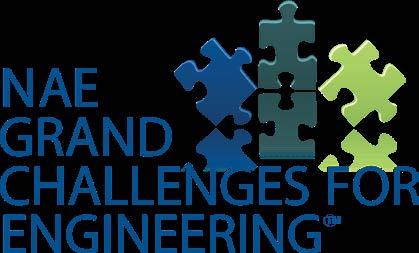
<< 2022-23 YEAR IN REVIEW >> 27
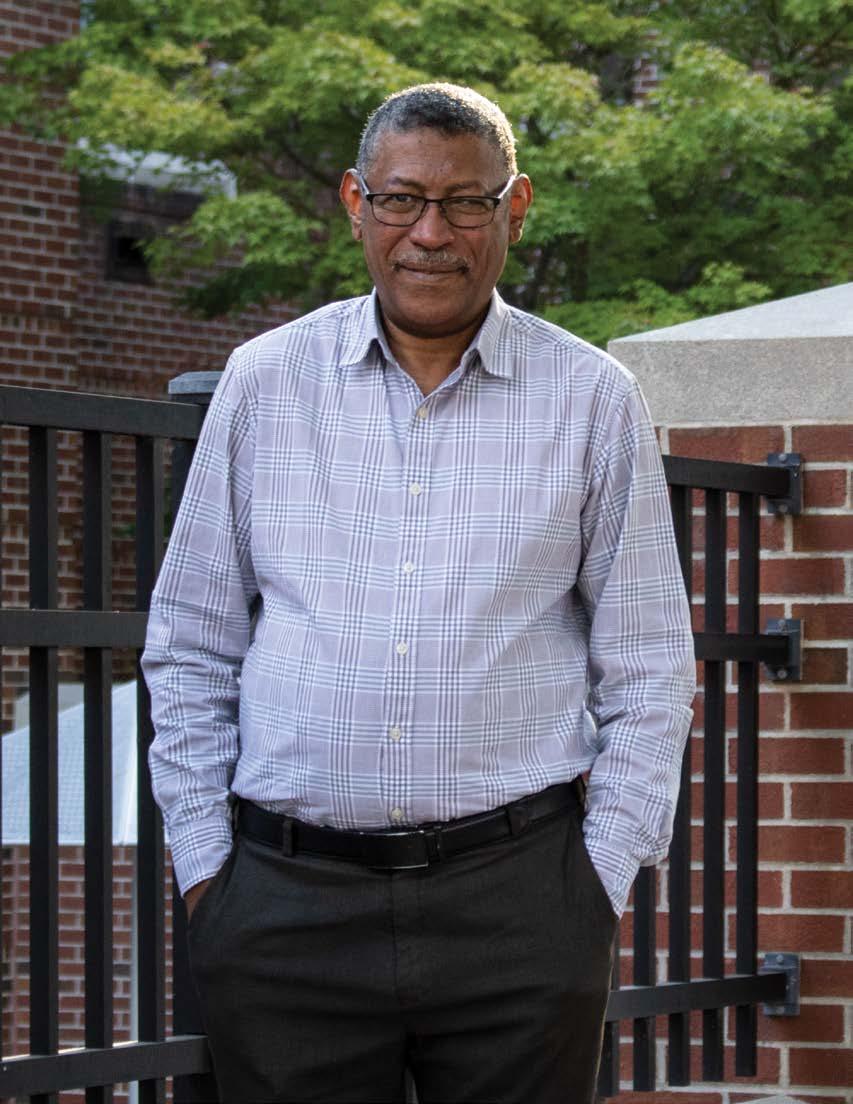
<< UTC.EDU/CECS >> 28
Faculty Spotlight: Dr. Abdelrahman Karrar
by Sara Jackson
Electrical Engineering
It may be that some sharp-eyed observer in the Engineering and Computer Science building can often spy light slipping out from under one specific office door well into the nights and weekends when the building is quiet of traffic and chatter. Long after most students are in their residences and the parking lot has emptied, there is one car that remains, covered with dew or frost. The origin of this after-hours disturbance is surrounded by towers of paper and white boards chock full of calculations, and he works steadily and unceasingly on more computations until he reaches a point in which he must step back, check his work and consider his next move.
Students, fellow faculty and staff already know by the description that the lone engineer is none other than Dr. Abdel Karrar. An electrical engineering professor at UTC since August 2014, Dr. Karrar has served the college as department head and professor. For all his service and long hours, his quiet dignity and friendly poise hints at great depth of character.
Dr. Karrar’s earliest memories of childhood are centered in Los Angeles, California, where his father was enrolled at the University of Southern California, studying for a master’s degree in economics. Between episodes of Gilligan’s Island and Lost in Space , young Abdel Karrar and his sisters enjoyed the fruits of California: sunshine, strawberries and modern amenities. When the family moved back to Khartoum, Sudan, Dr. Karrar remembers his father encouraging him to read. He fondly recalls The Wind in the Willows and The Lion, The Witch, and The Wardrobe , reading choices heavily influenced by the legacy of British Imperialism as well as his father’s own undergraduate studies in literature. With his father’s varied interests so pervasive and influential, there is little wonder about the origin of Dr. Karrar’s drive to deeply understand his own field of study.
Dr. Karrar attended the University of Khartoum to study electrical engineering. He wanted to go into electronics; his two mentors, Dr. Eric Bolton and Dr. Mutasim helped him discover power systems. They both strongly encouraged him to study that which would improve his country and his fellow Sudanese people. In other words, his education became a calling to give back to others.
At the top of his class in Khartoum, Dr. Karrar was offered an opportunity to obtain his Ph.D. from Loughborough University, one of the top twenty research-led universities in the United Kingdom. From there, he was hired as a consultant to the National Electric Grid in Sudan and gained a great deal of field experience. During this time, he also taught at the University of Khartoum, and during his tenure there, he set up a master’s program and equipped three labs to train students. Dr. Karrar also owned his own successful company that he later sold.
Research is his current love, and the research he does at UTC has earned him accolades. His IEEE paper has won “Best of the Best,” and TVA has recognized Dr. Karrar as a top researcher.
“TVA Nuclear Engineering and the UTC Electrical Engineering Department have had a longstanding relationship focused on workforce development and research for our nuclear plant electrical systems. Dr. Karrar’s arrival on the scene at UTC started an era of success in our research activities that is unprecedented. Many of these successes have received the highest levels of global recognition and have been recognized for their overall societal impact,” states Mark Bowman, senior program manager in power system analysis at TVA.
In conclusion, when in the Engineering and Computer Science building, and Dr. Karrar is here, knock on his door, offer him some tea, and ask about his research. He will be more than happy to share his stories and insights about dedication, devotion and yes, even power systems.
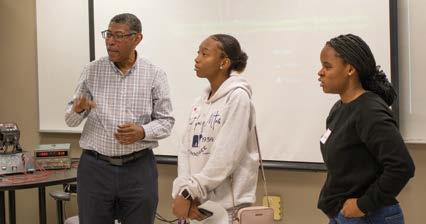
<< 2022-23 YEAR IN REVIEW >> 29
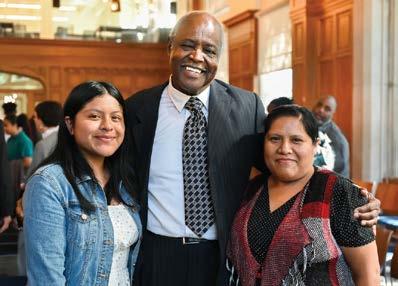

UTC Thanks Community Leader and Hamilton County Legislator Who Secured Funding for Moreland Minority Engineering Scholarships
Forty-six minority engineering scholarships have been awarded thus far through a program at the University of Tennessee at Chattanooga, where a Thursday, Sept. 29, 2022 celebration was held to thank Tennessee Sen. Todd Gardenhire for securing funding and former Chattanooga City Councilman James Moreland for recruiting prospective scholarship recipients.
Joined by UT System President Randy Boyd and former CECS Dean Daniel Pack, UTC Chancellor Steven R. Angle thanked Gardenhire for his work to secure state funding for the scholarships and Moreland for helping create awareness of their availability.
In 2022-2023, 25 UTC students are Moreland Scholars, while the scholarship program impacted 21 students during the 2021-2022 academic year.
“Sen. Gardenhire often meets our students in the capitol and he’ll tell our students, ‘I’m a problem solver. Bring me problems and let me help,’ and this is one case where he’s done exactly that,” Angle said. “It really is his thoughtful attention to the needs of Tennessee’s employers, the need for more affordable education for Tennessee students and for opportunities for UTC to connect that is why this lastdollar scholarship is already having an impact.”
Gardenhire worked with colleagues in the Tennessee General Assembly to secure $500,000 in state funding for scholarships for selected UTC minority engineering students in 2022-2023, on the heels of securing $100,000 for the program in the 2021-2022 academic year.
“I want to thank you for your vision,” Angle added. “Thank you for trusting us to do the right thing, to take care of these young people and provide a great education. We also are so honored to be able to partner with Mr. Moreland in this effort and with his connections to help make people aware of the opportunity. We owe a big debt of gratitude to everyone who’s involved with this.”
Boyd praised Gardenhire’s persistence in making the scholarship funding possible.
“We are here today for a lot of reasons. We’re here to celebrate UT Chattanooga and this opportunity for so
many students, but I also want to say thank you to Sen. Gardenhire,” Boyd said. “If it wasn’t for his tireless passion for this project, it wouldn’t have happened.”
Gardenhire, a 1972 UTC graduate, insisted on sharing the spotlight with Moreland, for whom the scholarship program is named. Gardenhire cited Moreland’s inspirational personal story and record of civic engagement and predicted his friend would continue playing a key role in recruiting scholarship candidates.
Moreland said his desire to give back in gratitude for his own success makes his involvement an especially valued honor.
“I wanted a college education so bad, but I didn’t get a chance to go to college,” Moreland said, describing a lack of financial resources as a barrier. “I was blessed enough to get a job at DuPont. I started out as a machine operator. I was promoted seven times within 29 years, and I ended up being one of the top executives for DuPont. It means so much to me at my point in life now. I want to be that hand up to help somebody, to give them that chance to open up some doors.”
Directly addressing several current scholarship recipients at the event, Moreland added, “All you young folks take advantage of this, a golden opportunity. If you do good, we hope that we’ll be able to get some more funding to help some more kids on the way, so we are counting on you.
“I just want to see your faces when you march down that line with that diploma in your hand going out to go to work. I am also kind of putting in a plug for Chattanooga. We got a lot of good jobs in Chattanooga, so when you graduate, please give Chattanooga some consideration.”
Engineering student Adam Belton, president of the UTC chapter of the American Society of Civil Engineers, credited the Moreland Scholarship, his academic advisor and faculty with persuading him to continue his studies when he had doubts. Belton said the scholarship frees him to focus entirely on academics instead of juggling a job to cover expenses.
<< UTC.EDU/CECS >> 30
“I just want to say an immense thank you to Sen. Gardenhire and Mr. Moreland for allowing me to be here and many others—others like me—to be here, those who couldn’t pay for school and are now able to follow what they want to do and love,” Belton said. “I’m eternally grateful.”
As a “last-dollar scholarship,” the Moreland Scholarship applies to costs that remain after funding from all other aid, such as federal Pell grants and Tennessee HOPE scholarships, has been applied. Funding per student varies, with a maximum $5,000 annual award per student.
Eligible students must be Tennessee residents, identify as a member of a minority group and have a high school GPA of 3.0 or better. Assuming a satisfactory minimum UTC GPA, scholarship recipients for 2022-2023 can receive the Moreland for all four years as undergraduates.
A UTC College of Engineering and Computer Science survey of recent graduates found a median annual salary of $72,500 reported by engineering graduates in their first year of employment and local demand in engineering jobs far exceeding available supply.
UTC Among Seven U.S. Universities to Receive Renewed NSF Funding for Cybersecurity Workforce Development Projects
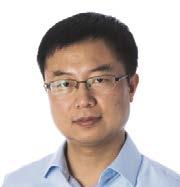
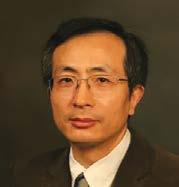
A University of Tennessee at Chattanooga academic program dedicated to preparing future professionals to meet rapidly expanding needs in the field of cybersecurity has won renewed funding from the National Science Foundation’s CyberCorps Scholarship for Service initiative.
The UTC program, “Collaborative Research: CyberCorps® Scholarship for Service: Strengthening the National Cybersecurity Workforce With Integrated Learning of AI/ ML and Cybersecurity,” is among seven American university programs selected for renewed funding of more than $24 million from NSF over the next four years.
The UTC program is overseen by Dr. Mengjun Xie, a UC Foundation Associate Professor and director of the UTC Information Security (InfoSec) Center: A National Center of Academic Excellence in Cyber Defense.
“The successful renewal of the CyberCorps Scholarship for Service award symbolizes an impressive endorsement of our university and cybersecurity programs by the National Science Foundation,” Xie said. “This highly selective award demonstrates the exceptional quality and capacity of our cybersecurity education and research. The award will strengthen our stature as a National Center of Academic Excellence in Cyber Defense and reinforce UTC’s commitment to enhancing the nation’s cybersecurity workforce and capacity through innovative educational programs and cutting-edge research.”
The UTC program was launched in 2017 with funding of $1.5 million from NSF’s CyberCorps Scholarship for Service initiative. After graduation, former scholarship recipients are required to work “in the cybersecurity mission of a federal, state, local or tribal government organization” or other designated entities for a period equal to the length
of the scholarship, according to NSF. UTC program alumni have gone on to careers with TVA and Oak Ridge National Laboratory, among other federal agencies, said UTC Professor of Computer Science Hong Qin.
“The Department of Computer Science and Engineering at UTC takes pride in the SFS Cyber Corps program, recognizing it as an extraordinary opportunity for our students who are committed to national service. Through this program, we endeavor to enhance awareness of the rapidly expanding field of cybersecurity, emphasize its critical role in our digital world and encourage more students to journey into this rewarding career path,” Qin said.
“Furthermore, the synergy between cybersecurity, AI (artificial intelligence), quantum computing and the Chattanooga Quantum Initiative presents exceptional opportunities for regional economic growth. This initiative aligns with our continual efforts to attract a diverse talent pool and boost enrollment in our department, ultimately strengthening our community of aspiring cybersecurity professionals. Our aim is to shape a future where our graduates are at the forefront of advancing cybersecurity, contributing not just to the safety of our digital spaces, but also to regional and national economic prosperity.”
For more than 20 years, NSF’s CyberCorps SFS program has developed the U.S. cybersecurity workforce and aligns with the White House’s newly released “National Cyber Workforce and Education Strategy: Unleashing America’s Cyber Talent,” the agency stated in an announcement earlier today.
NSF’s funding renewal builds on $29 million in funding announced earlier this year.
“Cybersecurity is critical to our nation’s economic and national security. Through this program, NSF has helped more than 4,500 students get the degrees they need to be part of the cybersecurity workforce and helped them give back through public service,” said NSF Director Sethuraman Panchanathan. “With this announcement, NSF reaffirms its commitment to invest in institutions that have demonstrated exceptional success and innovative advancements to their existing projects with the aim of fostering a robust workforce and growing interest in cybersecurity careers.”
UTC is among 98 institutions currently participating in the CyberCorps SFS program across 39 states, the District of Columbia and Puerto Rico.
<< 2022-23 YEAR IN REVIEW >> 31
Dr. Mengjun Xie
Dr. Hong Qin
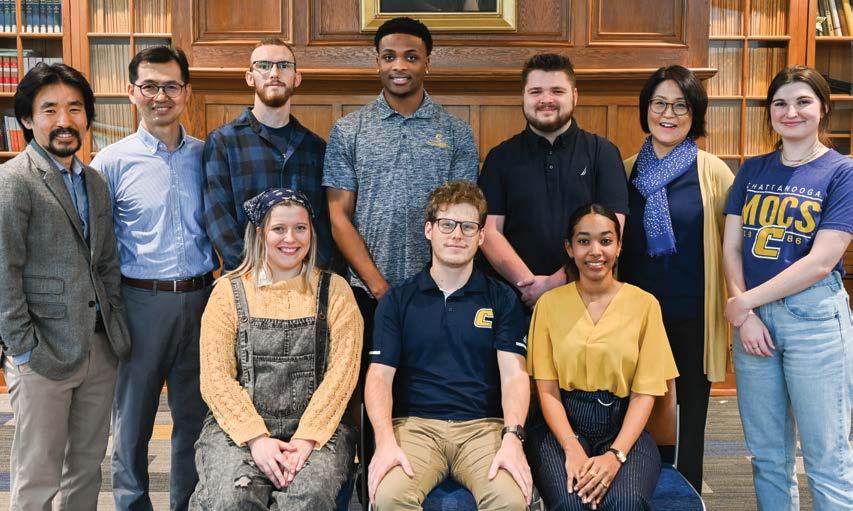
Decathlon Top 10: Interior Architecture and Engineering students design cost efficient, comfortable home
by Shawn Ryan
University of Tennessee at Chattanooga students had five weeks to produce plans to wow judges in a competition with 124 teams from universities across the world. They did it.
The eight-member team of students from the Department of Interior Architecture and Design and the College of Engineering and Computer Science entered the U.S. Department of Energy’s 2023 Solar Decathlon Design Challenge to design a house to be energy- and cost-efficient while also a comfortable living space.
An entrant in the Attached Housing division—for designs of multi-family structures such as apartments— the UTC students’ preliminary floor plans submitted in February impressed the judges, and the team ended up as one of 10 finalists in the category.
“We want to have energy- and cost-efficient housing but, at the same time, what can we do with interior design?” asked Dr. Eun Young Kim, assistant professor of interior design and faculty advisor for the Design Challenge team.
Winners will be announced later this month in the Solar Decathlon conference in Golden, Colorado.
When the students began the design process, they started with plans from the Chattanooga Neighborhood
Enterprise, a local organization that provides new homes to low-income families.
One of the CNE’s ongoing projects is Missing Middle, which builds small-scale apartments that fit into the style of traditional neighborhoods, said CNE Vice President Justin Tirsun.
“I knew what CNE is doing,” Kim said. “So I approached them and said, ‘Hey, we are doing a design competition, and we want to use your project. Is there any way we can enhance your building’s energy performance and enhance occupants’ experience?’”
A six-apartment Missing Middle project already has been completed at the intersection of Bailey Avenue and South Willow Street, and blueprints from that project were given to the UTC team.
“Dr. Kim and her students are leading the project. The team is incredibly enthusiastic and hardworking,” Tirsun said. “We hope they will produce a better product that we can incorporate into future building plans. They have already shown us promising recommendations we will likely try to adapt into our future construction.”
UTC senior Landon Parker said he and the three other team members majoring in interior architecture and
<< UTC.EDU/CECS >> 32
Front row, from left: Blake Burba, Landon Parker, Lina Abdelkarim. Back row, from left: Sungwoo Yang, Seong Dad Kim, Caleb Traxler, Daron Lyons, Jacob Ridenour, Eun Young Kim and Robyn Wood.
design are working on ideas for the interior and exterior of the house and on lowering energy costs—which can mean costlier building materials that are cost-saving in the long run.
“It depends how you look at it because, after a while, it pays itself off, but it tends to be a lot more expensive upfront,” said Parker, who’s from Nashville and graduated from Brentwood High School.
Learning the ins and outs of structure design is a plus in his plans to be a commercial architect after graduation.
“My dad’s an architect, so I’m following his path,” he said.
Engineering students, under the guidance of Dr. Sungwoo Yang, assistant professor of civil and chemical engineering, tackled the preliminary studies into the structure’s energy performance. Team member Caleb Traxler, a junior in mechanical engineering, has been focusing on the home’s appliances and overall energy needs.
His ultimate goal after college is to work in the nuclear field and, even though there’s an enormous difference between the energy needs of the Design Challenge house and a nuclear reactor, the engineering concepts are basically the same, he said.
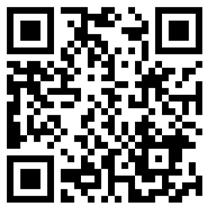
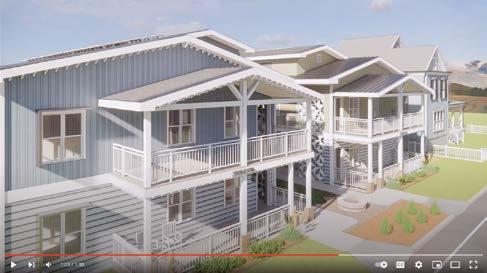
“A lot of this is helping me to apply those thermodynamic concepts on a much smaller scale,” said Traxler, who’s from Chattanooga and graduated from Collegedale Academy. “If it works in a home, you can actually scale it quite well to a much larger area. Thermodynamics is fun like that.”
DESIGN TEAM STUDENTS
Mechanical engineering: Caleb Traxler
Chemical engineering: Daron Lyons
Construction management master’s students: Lina Abdelkarim and Kenisha Gardner
Interior architecture and design: Landon Parker, Blake Burba, Jacob Ridenour and Robyn Wood

<< 2022-23 YEAR IN REVIEW >> 33
to watch a video of the Student Presentation 23DC ATTATCHED HOUSING UTC PITCH
Scan
The University of Tennessee at Chattanooga Master of Computer Science program (MSCS) has been
recognized as one of the best online master’s degrees by Forbes Advisor, a leading information platform dedicated to helping consumers make educated financial choices.
Forbes Advisor’s roundup of the top 10 online computer science master’s degrees in the U.S. rated UTC among the best overall based on factors like affordability, student outcomes, and student experiences.
Why UTC Was Selected
The University of Tennessee at Chattanooga’s (UTC’s) online MS in computer science comprises 33 or 36 semester hours, depending on whether graduate students complete a thesis or a project, respectively. Core courses include theory of computer programming languages, model analysis and simulation and advanced topics in systems software.
All MSCS students at UTC must maintain a minimum 3.0 GPA to graduate. Incoming learners who lack previous academic experience in certain areas may have to complete up to 18 semester hours of prerequisite in computer science foundation courses or mathematics.
UTC’s InfoSec Center is a National Security Agencydesignated National Center of Academic Excellence in Cyber Defense (CAE-CD), making the school an especially relevant choice for students planning careers or further education in cybersecurity.
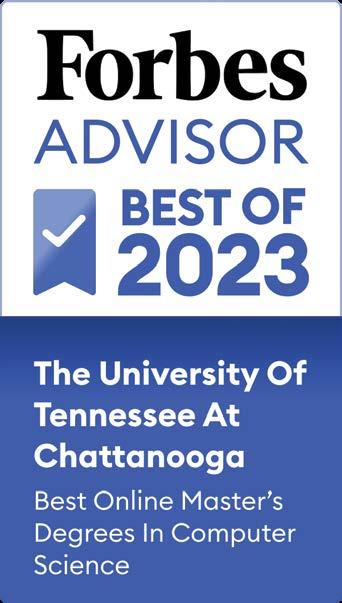
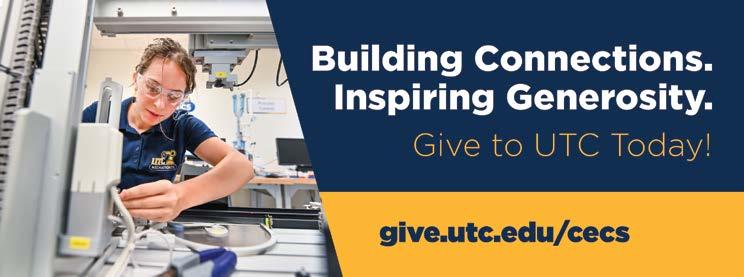
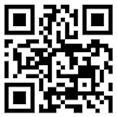
<< UTC.EDU/CECS >> 34
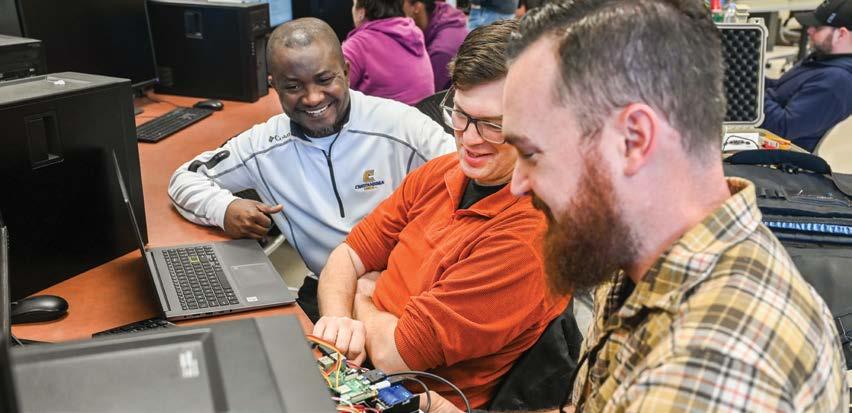
Six Fields Robots are Revolutionizing (and How They’re Doing It)
Robots are increasingly doing what humans can’t, shouldn’t or don’t want to do—from writing emails and vacuuming the floor to exploring space and disarming bombs.
The field is diverse and the applications are growing exponentially. The robotics program at the University of Tennessee at Chattanooga provides students with foundational knowledge and skills they can use to land highpaying jobs in almost any industry spanning the public and private sectors.
“Our graduates are really, really in demand,” said Dr. Abdul Ofoli, head of UTC’s Department of Electrical Engineering and its robotics program.
Study what interests you
The sky is the limit for students majoring in robotics, said Ofoli, who sponsors the UTC chapter of the Institute of Electrical and Electronics Engineers and promotes the study of robotics in secondary schools in Hamilton County and throughout Tennessee.
“I tell students to find out what excites them and know that we have space in the robotics curriculum for them to pursue that,” he said.
My students also have the flexibility to choose the areas they want to work in and create their own path with guidance from their professors.”
UTC Robotics
“Our work is mainly focused on building robots and drones and getting them to work the way we want.
We also create AI systems so that our robots can perform tasks that usually require human intelligence, such as understanding language, recognizing objects and patterns, making decisions and solving problems.”
The UTC robotics curriculum is hands-on and projects touch on areas from industrial automation to space exploration.
Some of the fundamental questions Ofoli and his students and studentresearchers ask include: How do you make a robot “see” or “touch” objects with which it interacts?
“Robots are trained to be able to go out and do stuff, so they have to be able to make decisions with the data they collect and analyze too,” Ofoli said.

Scan to watch a video from Dr. Ofoli’s interview
How We’re Doing It
1. 2.
Improving safety – Robots can perform tasks that are too dangerous for humans, like working in space or disarming a bomb.
Automation – Robots can automate tasks and make them more efficient. This can lead to increased productivity and reduced costs.
3.
Healthcare – Robots can assist with surgery, reducing the risk of human error and improving patient outcomes and care.
4.
Education and Inspiration –Robotics research can inspire young people to pursue careers in STEM fields.
5.
Sustainability – Robots can be used to monitor and reduce carbon emissions or to clean up polluted areas.
6.
Exploration – Robots can be used to explore new frontiers, such as deep-sea exploration, space exploration or the exploration of other planets.
<< 2022-23 YEAR IN REVIEW >> 35



Visit our beautiful campus in Chattanooga, Tennessee! To schedule a tour: utc.edu/cecstours Engineering and Computer Science Building | Room 450 | 735 Vine St. - Chattanooga TN, 37403 p: 423-425-2256 e: cecs@utc.edu facebook.com/utccecs twitter.com/utc_cecs instagram.com/utc_cecs APPLY utc.edu/apply LEARN MORE utc.edu/CECS VISIT utc.edu/cecstours





































































